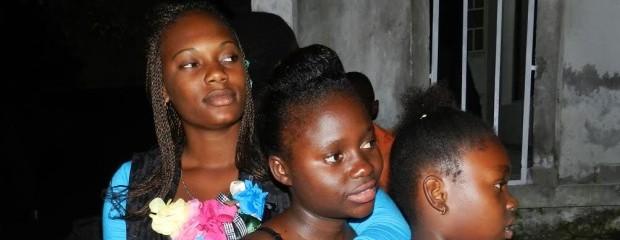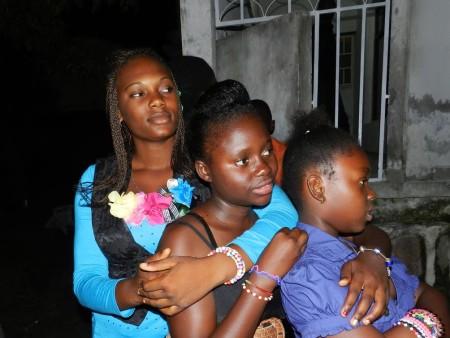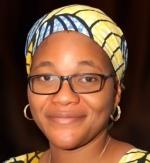My life as a Mushamuka: on dowries and drinks in Kinshasa – By Kris Berwouts

I had just arrived in Kinshasa when Pascal called me. “Can you keep Saturday evening free for us?” he asked, “we need you as a mushamuka.” “Absolutely,” I replied, “count me in,” fully confident that mushamuka wouldn’t mean plumber or electrician.
But to be on the safe side, I checked the word “˜mushamuka’. When a boy and a girl fall in love and decide to live together, a delegation of his family visits the family of the girl to introduce him and ask for her hand. The entire process of the marriage is discussed in great detail. Where and when and how will the civil and religious ceremonies will take place, but the most important issue to discuss is la dot – the bride price. This is the money and goods the man’s family gives to the parents of his future wife to express his respect for her family and to thank them for all those years of good care and education they have given her. It also serves to compensate the loss of someone working in the household or the fields. It is deeply rooted in tradition, has a strong ritual dimension but it is about real money. A bride price is heavily negotiated.
A mushamuka (plural bashamuka) is a wise man, one of the elders bearing responsibility within a family. Pascal’s cultural background is Shi (one Mushi, two Bashi, they all speak Mashi), one of the larger communities in South Kivu. So Pascal had invited me to join the committee of bashamuka of his family to meet and discuss with a delegation of Serge’s family. Serge wanted to marry Noella – Noella being Pascal’s daughter. Or rather, she wasn’t. She wasn’t even a relative. But the family had embraced her in her earliest childhood because she was an orphan with no one to rely on. She grew up under Pascal’s roof. He was her father, blood-related or not. In my experience, this happens more often in war-torn countries then elsewhere.
I turned up at the gathering two hours late but apparently Serge’s family had not arrived yet. This at least gave us bashamuka the opportunity to sit down together and refine our strategies – preparing ourselves mentally with a drink or two. You have to be in the proper mood to handle such serious ceremonial affairs. The event had something rather jolly about it: a balmy tropical night, a garden full of tables and chairs and lights, sophisticated scents coming from the kitchen, the women and children wearing their best clothes. We bashamuka constantly quarreled with the guy running the sound system as the chap did not seem to understand that we were discussing serious matters. In such a situation one should at least be able to hear one another talk above all the noise produced.
Enrobed in dignity and with sweat stains all over, we solicitously prepared the meeting. Such events are never simple, but this time we expected it to be even more delicate. We were here to represent the Shi tradition of eastern Congo, but our guests came from elsewhere. They were Bangala – their roots being somewhere on the border between Bandundu and Equateur provinces. There are a lot of forests up there and we have no idea of these people’s customs and values. Of course they know the bride price, all Congolese communities do. But we had to wait and see before we would know how they dealt with it and what their tradition imposes about marriage and the bride price.
Eventually they arrived. They wore fancy clothes but were visibly very nervous. We offered them a drink. That was not a hard thing to do. Earlier this afternoon they had sent us a few crates of beer and sodas. Before they took a sip though the entire delegation started to pray in devoted silence. Did they want to impress us or was this just the way they are up there in the forest?
It was already past the time we had agreed to proceed with the day’s agenda. But first we had to scotch the bloke with the sound system to disarm him.
Boni, our spokesperson among the bashamuka, stood up and welcomed them warmly. After all, weren’t we representing two different corners of this vast and beautiful country? But that shouldn’t be an obstacle to spending some fine hours together with all this delicious and abundant food, to pay tribute to Congo’s indivisible unity. One of them stood up and thanked Boni and the rest of us for our affectionate hospitality, before starting another long prayer. Oops, those guys had brought their own priest with them. This was going to be a long evening.
Their spokesperson started to explain who the people were he had brought to our house. In Lingala of course, the lingua franca here in Kinshasa. As soon as he opened his mouth, a shiver ran through our delegation. What a weird accent! It took us a while before we were really sure – it was our accent. The chap was Mushi. Can you imagine that? They had picked their spokesperson from our community. How cunning can you be? It was glaringly clear: we had to deal here with shrewd strategists. If we didn’t stay focused and sharp tonight they would deceive us in our own garden.
For the next half hour jokes went back and forth with the sole aim of finding out about each other. “Well, you told us who you are, we’re glad you came, but we still do not know why you came.” “Our son Serge has lost his heart to a stunning girl. Her name is Noella. We heard she lives here.” “Noella? Let me think… Do we know any Noella? Oh yes of course, there used to be someone around who answered to that name, but she went back to the east to see her relatives. She didn’t come back yet, it seems that she has been blocked by the war.” Meanwhile, Noella followed every single word of the discussion, discretely hidden behind a curtain on the first floor.
“We are not very sure who exactly you are talking about, but if you want one of our girls that is no problem. We have plenty of them. Choose the one you like.” All the more or less marriageable girls of the family (except Noella, of course) jumped forward and started to sing and dance in front of Serge. For a few minutes he ran around the group and investigated each girl carefully. They were all splendid, but his face was sad: the queen of his heart was very definitely not in this group.
Eventually Noella came out of the wings, preceded by all the mothers and grandmothers, and followed by the smaller girls. She looked unreal, with smart clothes, a dazzling smile and eyes shining like diamonds. Serge was sure, this was the girl they had come to discuss.
Suddenly the talking became more concrete – we now had to decide on the practical bits of the marriage. And most of all, we had to discuss the bride price. Serge’s home folks said: “We want total clarity about the bill.”
The party was over, at least for the moment. Jokes were suspended. Time for us bashamuka to withdraw for deliberation. We withdrew into the garden, five well fed gentlemen squashed between two parked 4x4s . By now, sweat was pouring down my spine. Pascal looked exalted: “Plenty of problems here! To start with, it’s rude to call it a bill! We respect our women and it’s too much to use the words “˜wife’ and “˜bill’ in one sentence!” “At least before the marriage,” someone nodded. A joke. “We will have to make it clear that they should behave politely and mind their words very carefully.”
“Second problem: those guys suggested paying a pre-bride price. But we don’t do pre- or post- or whatever bride price. A proper bride price is all we know.”
“Third problem: we have asked them for five cows, at a rate of $ 500 per cow.” It was only then that I understood there already had been some contact and even negotiations. “This is how it goes in our culture: the bride price is calculated in cows. There are some minor things on the list as well, a hoe, a scarf, a pair of shoes, a kettle, … but that’s peanuts. Getting married means paying the bride price and bride price means cows. ”
“They proposed two cows and a bull to us. Those lads completely missed the point. Bulls don’t count for us. Cows are capital. Bulls are food. You will need your cows when you search for a wife for your son. It’s very friendly to offer us a bull. Now that I think about it, it’s even a brilliant idea. But it doesn’t count towards the bride price. The day they bring their bull we will invite them to eat it with us. But today we came together to discuss more serious matters then bulls. ”
The other family was called in. They joined us between the cars. We were even more squeezed together… Five cows was not an option for them. They told us a story of Dickensian grimness about orphans, hard times and giant bills. We hardly listened to it – we knew it all too well. Everybody lives in the same conditions here. They offered two cows and a bull. Someone mentioned goats. Did he really want to make us furious? Can’t they leave us alone with their goats and poultry and other vermin? Why don’t we simply discuss cows, like real men do?
We called the women in. Not Noella of course, but the mothers, aunts and grandmothers. Formally, they have nothing to say in these discussions. But in practice, if they do not agree on something, it will not happen. So it’s always wise to ask their opinion. Two cows with or without bulls! That is not a proposal. That’s an insult. But five cows was a lot. We knew that our first bid was probably not very realistic.
Eventually we settled on three cows. And a bull, as proof of our open-mindedness. The women started to cheer, a sign that the proposal was accepted. Let us feed those people and offer them some bottles of their own beer. Everybody queued up for the buffet, by then we were all joyfully stepping in each other’s sweat. The party could go on. This marriage might work out well, I thought. Liberate the bloke on the sound system. We need his noise.
Kris Berwouts has, over the last 25 years, worked for a number of different Belgian and international NGOs focused on building peace, reconciliation, security and democratic processes. Until recently, he was the Director of EurAc, the network of European NGOs working for advocacy on Central Africa. He now works as an independent expert on Central Africa.





